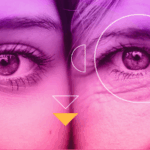Learn from Doing As AI Meets the Next Generation of Marketers
Mara Dettmann, UK Strategy Director, Laundry Service
Joya Scarlata, Director of Digital Marketing, InterraIT
With Rafaela Bresolin and Jordan Willis, MA in Advertising students at University of Arts London
It can seem like advertisers are allowed to have two opinions on AI.
The first is “AI will take over our jobs!”
The second: “AI is useless for advertisers!”
Yet neither POV is correct.
Currently, many industry leaders are fixated on the theory and their own preconceptions of what AI is. As a result, much of the conversation around AI in marketing revolves around the big picture topics: Can AI replace human marketers? Will it? What’s the future of creativity in the AI age? And look, there’s nothing wrong with going to those places; possibility starts with imagination. But the aforementioned two directions for our collective imagination seem to veer towards fear and pessimism, and they’re rarely informed by the actual applications and capabilities of these technologies.
The tendency to picture world-changing scenarios over the practical uses of AI for our daily tasks is why it’s no surprise that 70 percent of marketers feel “overwhelmed” by the pace of AI developments.
To this point, our friend and fellow AI enthusiast Dr Paul Caplan asked if we could create a task involving AI for his MA in Advertising students at University of Arts London. And we knew straight away what we wanted to see: a challenge that was all AI practice with no AI theory. So we set them the deceptively simple task of creating an entire marketing campaign working with AI as their partner in crime, and write a report off the back of it telling us about all the ways in which they used AI, how it worked, and where it fell short. From an array of impressive submissions, students Rafaela Bresolin and Jordan Willis’ reports stood out by taking risks and getting especially innovative, pushing AI in marketing to its limits.
Our experiment crystalized what we’d suspected with our hypothesis: Advertisers are too focused on the big picture conversations around AI in marketing.
To really understand how AI will impact the industry, brand decision-makers need to start using AI in practice as the insights of an immersed learning approach will always provide better direction than intangible projections.
Here, some takeaways from Jordan and Rafaela’s projects that demonstrate the power of imperfect action over hypothetical philosophizing.
ACTION DEFIES TACTICAL EXPECTATIONS
Using AI in the creative industries isn’t just about AI-generated copywriting and art creation; it’s also about shaking up behind the scenes. Jordan’s project took a unique approach: while most used AI to deliver creative output, he focused on how AI can help in other, less expected ways. Jordan specifically evaluated ChatGPT’s scope to fulfill the role of a project manager.
The learning? Don’t think that AI in advertising is just about using ChatGPT to write social posts or Midjourney to generate storyboards. There’s huge potential to use AI to help with marketing operations.
ACTION EMPOWERS LEARNING BY DOING
Action also empowered our participants to get the most out of AI by getting playful and experimenting. While Jordan tried to push AI to its limits focused on one specific role, Rafaela’s project had ChatGPT take on a range of different functionalities, from creative to strategic. She then evaluated where it was successful (and where it wasn’t). But Raf also experienced firsthand the limits of AI tools for productivity: “We found it hard to push AI beyond generalizations.”
The learning? Using AI tools is the best way to see where the tools can help you (and in how many different ways), but also where their limitations lie.
ACTION PROVES HUMAN SUPERVISION IS STILL ESSENTIAL
Both Jordan and Raf found the real value of using AI tools when they treated them as a collaborator, not as an expert in itself. In Jordan’s words, “Without human intuition, ChatGPT can become a Yes Man – it works best as a partner, not an automation.” Raf also saw this: while she noticed that “AI is very good at producing answers that sound right” like very confidently presented – but ultimately factually incorrect – insights on Gen Z.
The learning? Get a feel for where you can and where you can’t trust AI tools to help with your job. The more you use the tools, the easier you’ll find it.
Ultimately, the fear of the unknown will be balanced by what is known, so dive in. Advertisers in themselves won’t be replaced by AI, but those who don’t start using it risk getting left behind. And AI isn’t useless, provided the quality of the human input is refined. The first generation of true AI experts will include all those who make the leap from imagination to effort.






